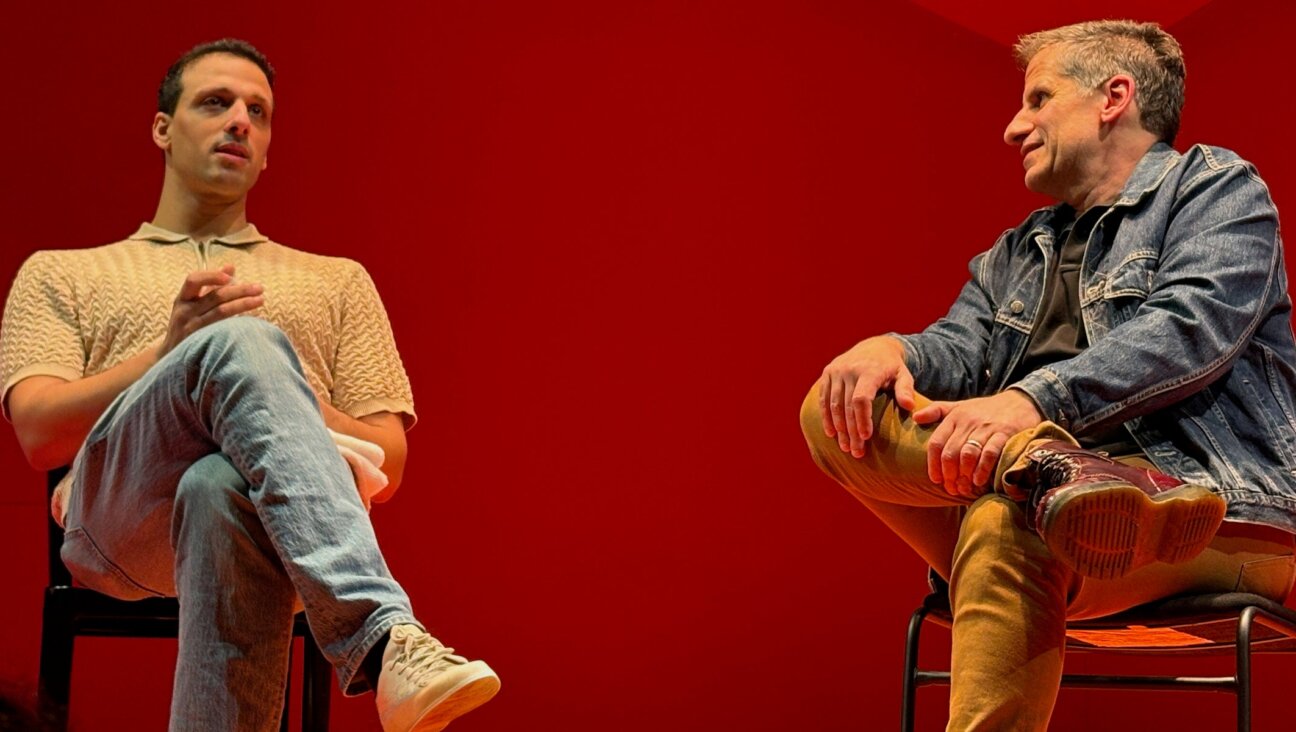Rabbi Michael Broyde Tight-Lipped About ‘Sockpuppet’ Scandal

No Comment: Rabbi Michael Broyde speaks at a conference on Jewish and Islamic law in Chicago. He had little to say about the fake name scandal that has erupted in recent days. Image by menachem wecker
As Michael Broyde paced beside a spread of bagels, lox, and pastries in the back of the room awaiting his turn at the podium, an audience member approached. “We’ve met,” the man said. “I just wanted to wish you well.”
Broyde’s keynote today at the conference “Shari’a and Halakha in America” at the Illinois Institute of Technology’s Chicago-Kent College of Law came three days after The Jewish Channel broke the news that the Emory Law professor and rabbi created a fake name “to gain access to members-only correspondence of a rival rabbinic group and tout his own work.”
Attendees who hadn’t followed the news closely wouldn’t have know a scandal was bubbling. The program identified Broyde as “Former Director and currently Dayan (judge), Beth Din of America,” although the Jewish court has suspended him indefinitely. And Broyde referred to the Beth Din several times in his remarks but didn’t reveal that he was suspended and repeatedly refused to discuss both the suspension and his pseudonym.
“No,” Broyde said, when asked during a question and answer session to comment on his future, if any, with the Beth Din. “I’m sorry. It’s a good question, but I can’t.”
After he finished his keynote on “Suggestions for Shari’a Courts based on the Precedent of the Beth Din of America,” Broyde again declined to speak to the Forward and hurried out of the room.
Earlier that day, Emory had released a statement calling the allegations against Broyde, who is a senior fellow at Emory Law’s Center for the Study of Law and Religion, “concerning.” The university is “reviewing the matter,” according to the statement.
Shlomo Pill, a second-year doctoral student in comparative Jewish and Islamic law at Emory and a student of Broyde’s, was one of the 40 attendees. Pill, whose LinkedIn profile identifies him as Broyde’s research assistant, called the conference a “really interesting, eye-opening experience.”
He was tight lipped, however, when asked about the news stories, Broyde’s teaching style, and even academic culture in general. “I’m going to refrain from saying anything at all connected to recent events,” he said.
Conference co-organizer Mark D. Rosen, a law professor at Chicago-Kent, also refused to comment at all on Broyde or on the reason the conference program identified Broyde as being affiliated with the Beth Din.
The 60 or 70 people who registered for the conference were more than Rosen had anticipated, he said, and the conference had to be removed to a different room to accommodate the larger crowd.
“That’s unusual for academic conferences,” he said. “Frankly, we were pleasantly surprised by the number that registered.”
Abdul-Karim Khan, professor of history at University of Hawaii’s Leeward Community College, was one of the people who braved a gloomy Chicago day to attend Broyde’s talk. Unaware of the news stories about Broyde, Khan found the professor’s talk “enlightening.”
“In the 25 years that I’ve been living in the United States, I’ve never seen something like this,” he said of the conference panels which brought Jewish and Islamic experts together.
Khan wouldn’t comment on the stories about Broyde, citing his lack of familiarity with the developments. But someone of Broyde’s caliber who uses a pseudonym must have had a reason to do so, according to Khan, who can imagine wanting, in certain circumstances, to get the truth out without revealing his identity.
“I might go behind a certain name,” he said.
















